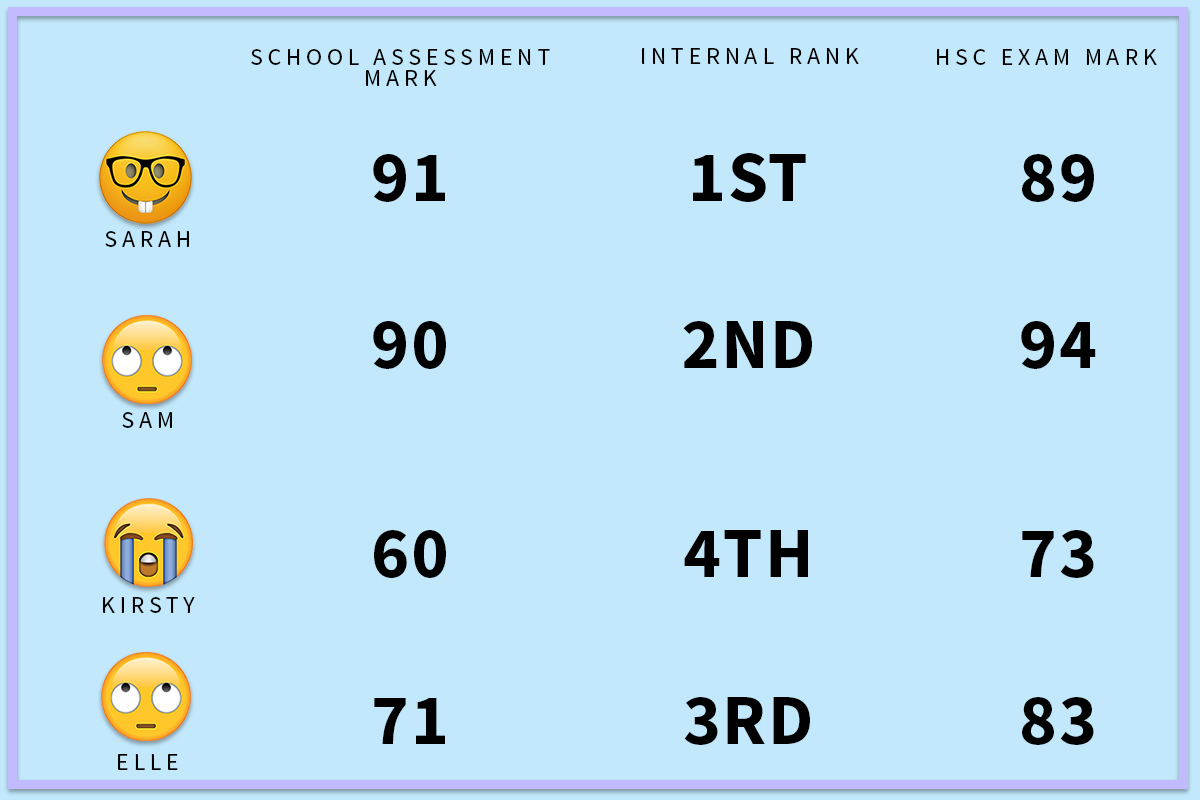Here are some of the questions we’ve been receiving:
- What happens if my class as a whole under performs in a subject? Will the person ranked number 1 be punished?
- Will my ATAR be better if I pick Mathematics, rather than General Mathematics?
- Which subjects scale better?
- How much does each assessment in school matter in relation to my final score?
![]()
WHAT IS SCALING?
Scaling tries to ensure that you aren’t advantaged nor disadvantaged by choosing one subject over another, eg. General Maths vs. Mathematics
The ‘scaling’ algorithm estimates what your marks would have been if you, and every other Year 12 student studied the exact same course combination. A visual map of how this is calculated is below.
![]()
RULES:
Obviously, a ‘good rank’ is more difficult to obtain when you are competing against students of high academic ability. So if you were studying 3 Unit maths, your ability to be ranked number 1 in your class is less likely than if you were sitting General Maths.
But marks in different courses can’t be even compared because the courses are completely different in content and nature.
So, because of the lack of comparability, your raw marks in that subject are scaled before they are added to give the aggregates.
For each subject taken there are 4 marks which are attributed to your final score:
- Examination Mark
- Assessment Mark
- HSC Mark
- Performance Band
![]()
THE PROCESS:

![]()
MODERATION EXPLAINED:
The top subject assessment mark from your school year is immediately changed to equal the top examination mark in the cohort, and the bottom assessment mark is immediately changed to equal the lowest examination mark in the cohort (or if not exact, very close).
The rest of the marks in the grade then are shifted, maintaining rank and relative distances between marks, so that the mean of the school assessment marks is equal to the mean of the examination marks.
Here’s an example: These four students all sat Modern History and are from the same school.

What will the moderated marks look like here?
- Sarah came first in her year, so her assessment mark is immediately changed to the highest HSC exam mark of 94.
- Elle came last, so her assessment mark is immediately adjusted to something very close to the lowest exam mark of 73.
- Sam and Kirsty’s marks will be adjusted so the mean of the moderated marks equals the mean of the exam marks. This means that both of their marks will go up.
![]()
What does this mean for you?
Lesson one: If you are 1st in your school, your school assessment mark is automatically maximised when it comes to moderation. This is a huge advantage.
Lesson two: The moderation process is based on the mean of the marks. So, the higher the average of your year group, the more favourable the process will be to your school. This is why students are “dragged up” by high achievers; they are pushing up the mean, and thus, pushing up everyone’s marks.
Lesson three: Pick subjects that you think you can do well in, rather than those that you think will ‘scale well’. Because as you can see, if you perform well – the moderation process will see you receive a good grade.
For more detailed information you can view the 2016 UAC scaling guide here.






